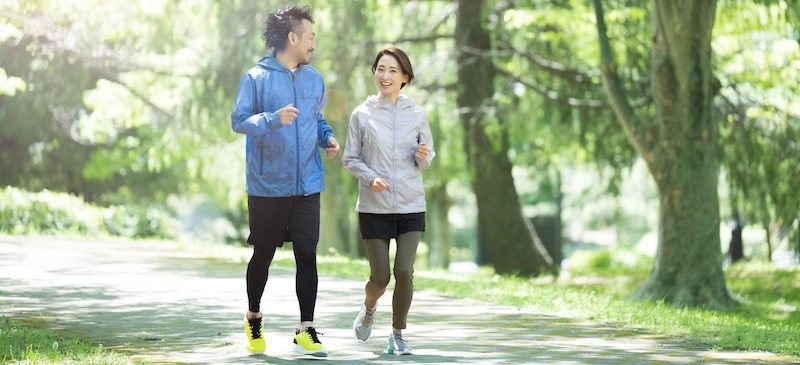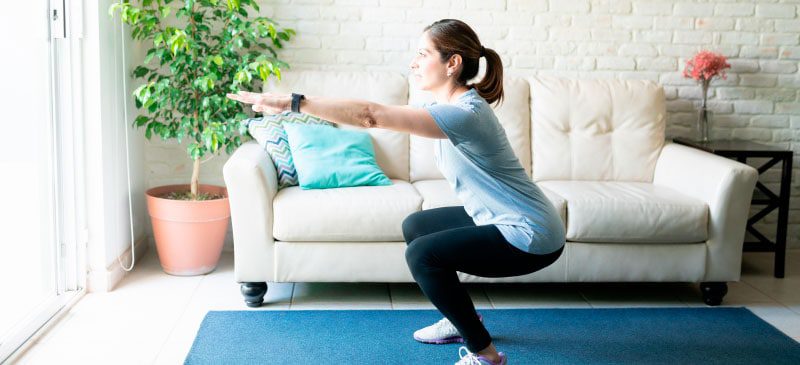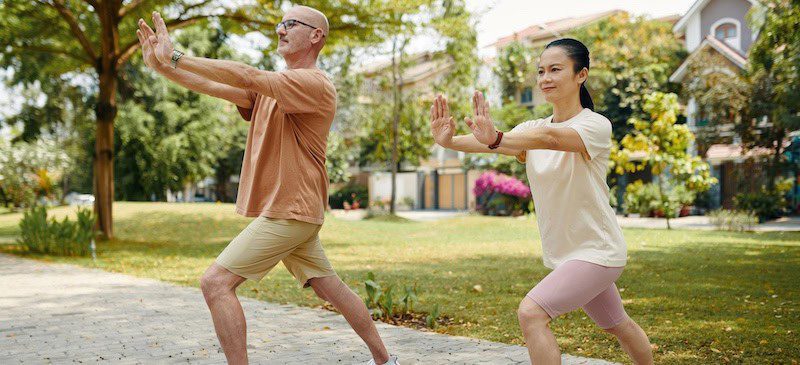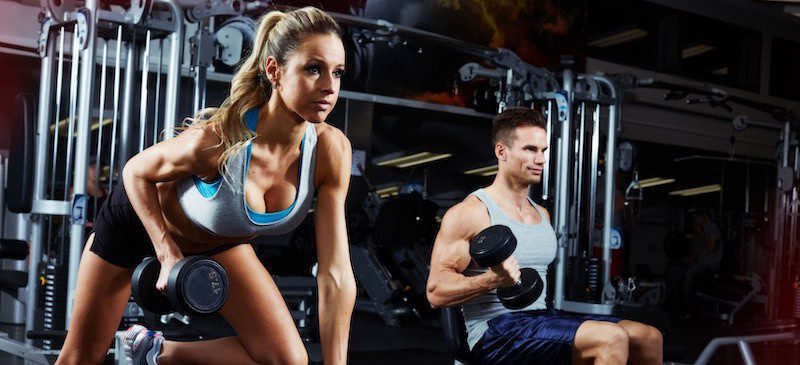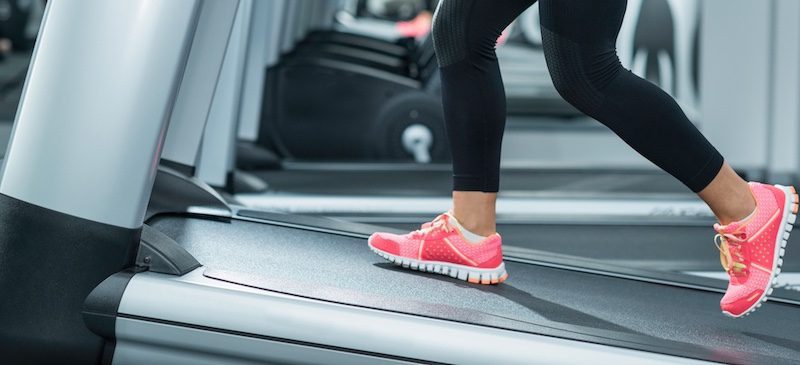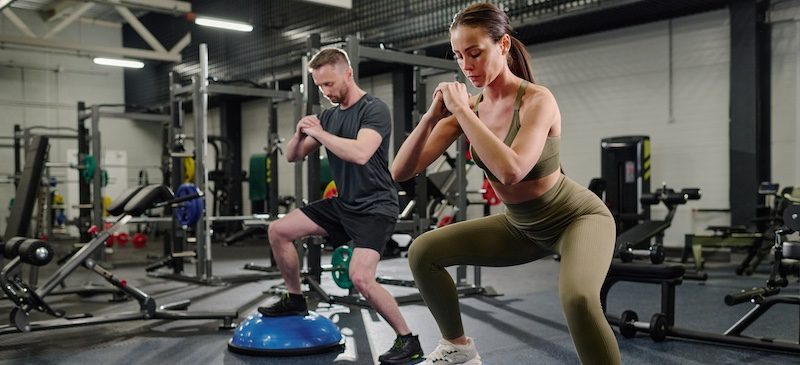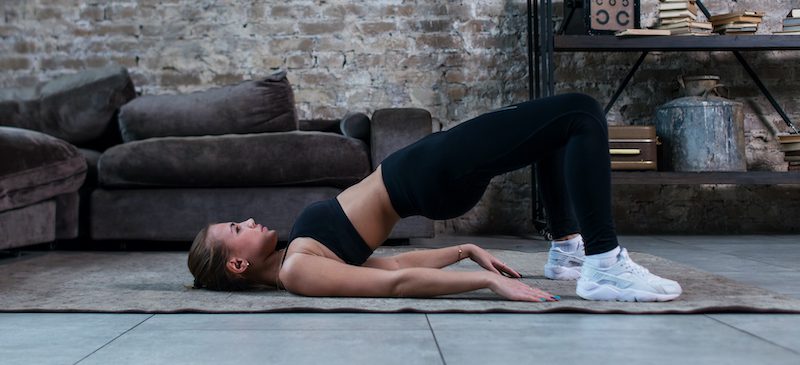

If you’ve ever dealt with tightness, pain or weakness in your hips, you know how much these joints impact daily life. It’s also a reminder that hip strengthening exercises should be part of your weekly workouts.
From walking and running to sitting and standing, your hips are at the center of nearly every movement.
Weak hips can lead to issues with balance, posture, back pain and even knee problems, which is why incorporating hip strengthening exercises into your routine is one of the smartest investments you can make for long-term health.
Importance of strong hips
The hip joint is a powerful ball-and-socket joint that provides both mobility and stability. When your hip muscles are weak, other parts of your body, especially your lower back and knees, tend to overcompensate, leading to aches and injuries.
Strengthening the hips not only protects against these issues, but also can help enhance athletic performance, support healthy aging and keep you moving with ease.

Research shows that targeted hip strengthening exercises can improve stability, reduce the risk of falls and even help alleviate chronic pain conditions. Whether you’re an athlete, desk worker or someone recovering from an injury, stronger hips are essential for optimal movement.
Common hip issues
Weak or unstable hips often contribute to a variety of problems, including:
Focusing on the hips with hip strengthening exercises can help prevent and manage many of these issues while improving posture and alignment.
Hip strengthening exercises
Here are some of the most effective hip strengthening exercises you can do at home or the gym. Aim for two to three sets of eight to 15 repetitions each, depending on your fitness level.
1. Glute bridge
How to do it:
- Lie on your back with knees bent, feet flat on the floor, hip-width apart.
- Press through your heels, and lift your hips toward the ceiling.
- Squeeze your glutes at the top, then slowly lower back down.
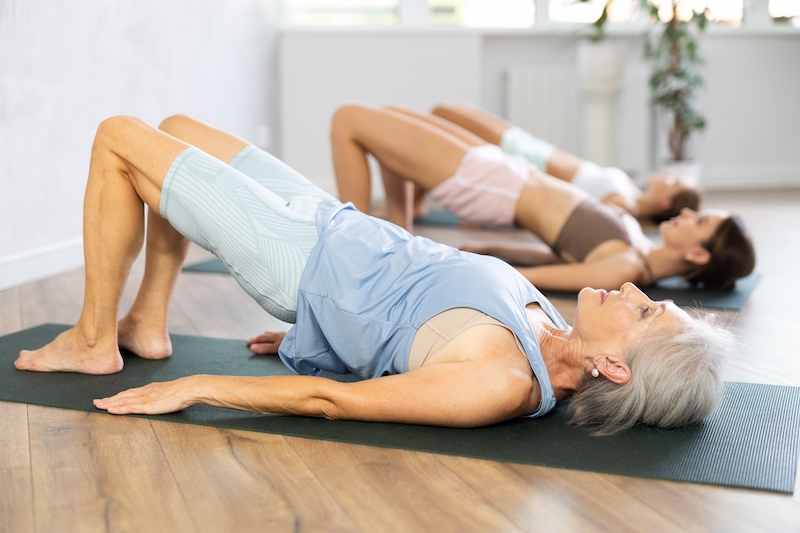
Benefits: Activates the glutes, hamstrings and deep hip stabilizers to improve hip extension and core stability.
2. Clamshells
How to do it:
- Lie on your side with knees bent at 90 degrees, feet together.
- Keeping feet touching, lift your top knee upward while keeping hips stacked.
- Slowly lower back down.
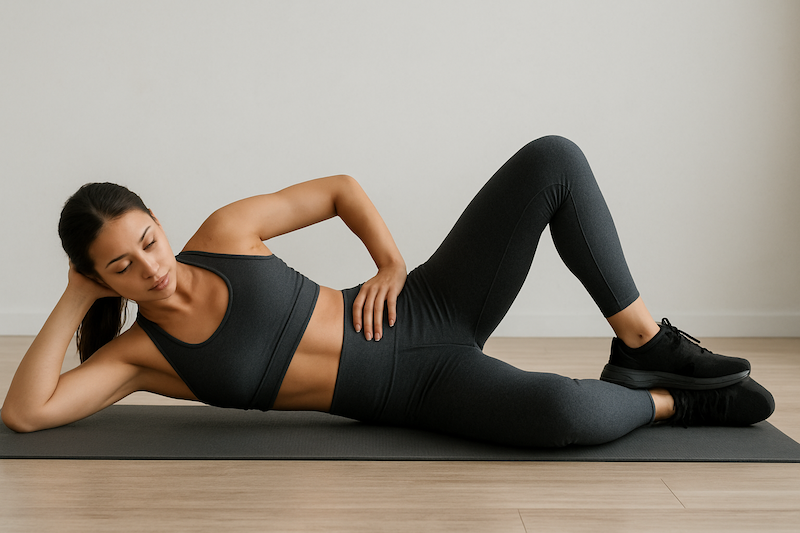
Benefits: Strengthens the gluteus medius and minimus, which are critical for hip stability, balance and injury prevention.
3. Side-lying leg raises
How to do it:
- Lie on your side with legs straight.
- Lift the top leg toward the ceiling, keeping hips aligned.
- Slowly lower without letting your hips roll forward or backward.
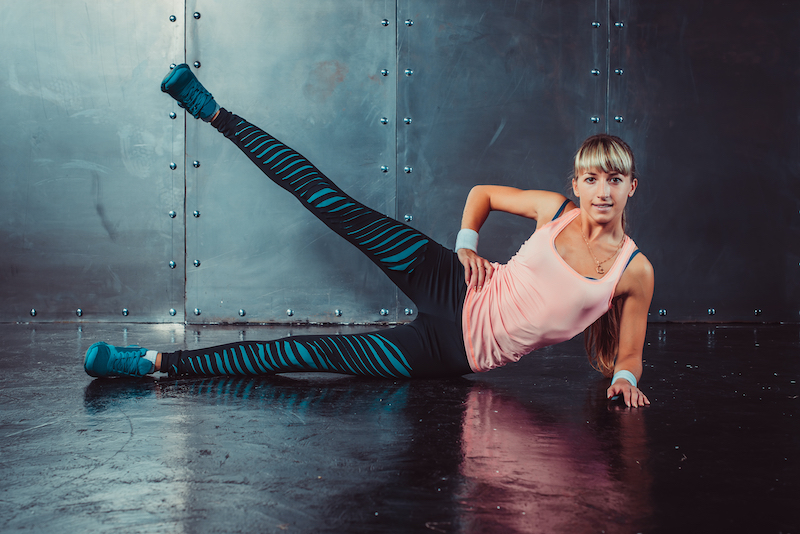
Benefits: Targets the outer hip and glutes, improving lateral stability and balance.
4. Squats
How to do it:
- Stand with feet shoulder-width apart.
- Push your hips back, and bend your knees to lower into a squat.
- Press through your heels to return to standing.

Benefits: A compound move that strengthens the hips, glutes, quads and core, while improving functional strength for daily movement.
5. Hip thrusts
How to do it:
- Sit on the floor with your upper back against a bench or step, knees bent, and feet flat.
- Drive your hips upward, squeezing your glutes at the top.
- Lower back down with control.

Benefits: Builds strong glutes and hip extensors, essential for posture, athletic performance and lower-body power.
6. Fire hydrants
How to do it:

- Begin on all fours, hands under shoulders and knees under hips.
- Keeping your knee bent, lift one leg out to the side.
- Lower back down slowly.

Benefits: Strengthens hip abductors and external rotators, which improve lateral stability and help prevent knee injuries.
7. Step-ups
How to do it:
- Stand in front of a step or bench.
- Step one foot up, press through the heel and bring the other foot up.
- Step back down with control, and repeat.
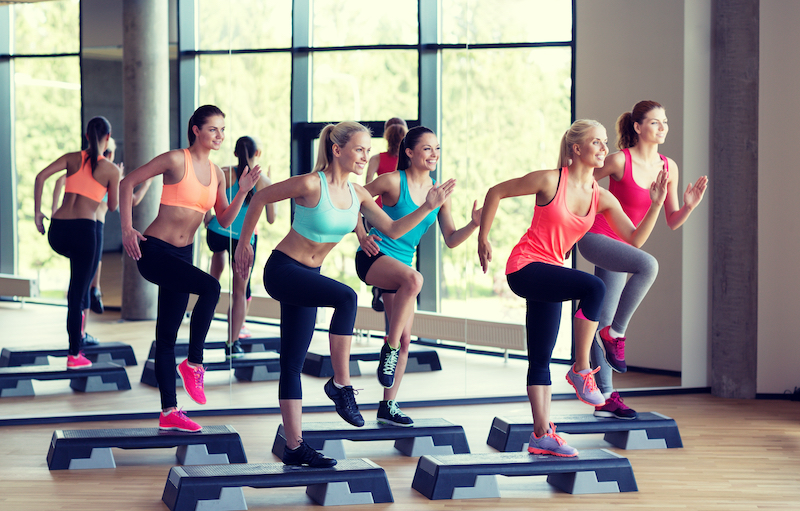
Benefits: Builds hip and glute strength while improving single-leg stability, balance and functional strength.
8. Single-leg hip bridge
How to do it:
- Lie on your back with one knee bent, the other leg extended straight.
- Press through the heel of the bent leg, and lift your hips toward the ceiling.
- Lower slowly, and repeat before switching sides.

Benefits: Builds unilateral hip and glute strength, improving balance and reducing asymmetries.
9. Lateral band walk
How to do it:
- Place a resistance band just above your knees or ankles.
- With knees slightly bent, step side to side in a squat stance.
- Keep tension in the band throughout.
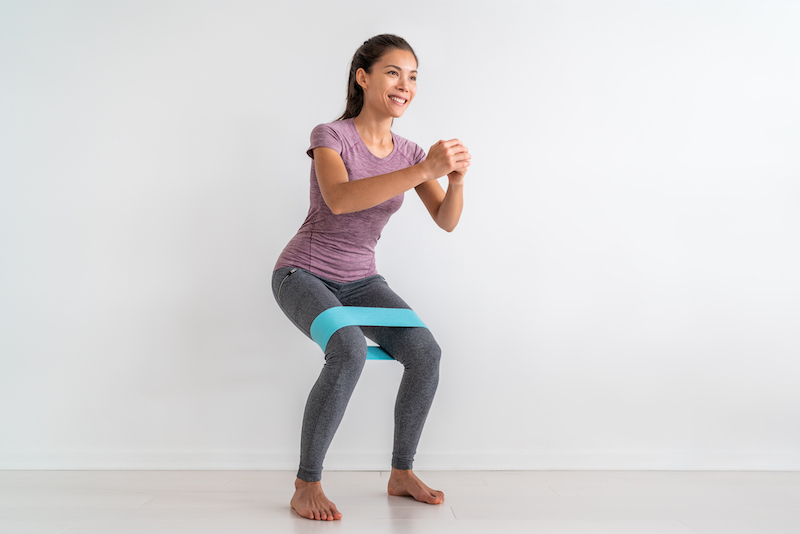
Benefits: Strengthens hip abductors, glute medius and stabilizers that are key for knee and hip health.
10. Lateral step down
How to do it:
- Stand on a step or low box with one foot off the side.
- Slowly lower the free foot toward the floor by bending the standing leg.
- Press back up through the heel to return.

Benefits: Improves single-leg hip strength and stability, while training controlled lowering.
11. Frankenstein walk
How to do it:
- Stand tall, and extend arms in front of you.
- Walk forward, lifting one leg straight to hip height to tap your hand.
- Alternate sides as you move forward.

Benefits: Stretches hamstrings while activating hip flexors, improving mobility and dynamic control.
12. Hip circles
How to do it:
- Stand on one leg, lift the other knee to hip height.
- Slowly draw circles with the lifted knee, moving clockwise and counterclockwise.
- Keep core engaged for stability.

Benefits: Mobilizes the hip joint while strengthening stabilizers, improving balance and range of motion.
13. Sidesteps
How to do it:
- Stand with feet hip-width apart, knees slightly bent.
- Step to the side, then bring the other foot to meet it.
- Continue for several steps in one direction, then reverse.

Benefits: Strengthens hips and glutes while mimicking functional side-to-side movements.
14. Single-leg Romanian deadlifts
How to do it:
- Stand tall on one leg, holding a dumbbell or bodyweight.
- Hinge forward at the hips, extending the other leg behind you.
- Keep back straight, and return to standing.

Benefits: Builds hip hinge strength, glute activation and balance while stretching hamstrings.
15. Hip marching
How to do it:
- Sit tall in a sturdy chair.
- Lift one knee toward your chest, then lower.
- Alternate sides in a marching motion.
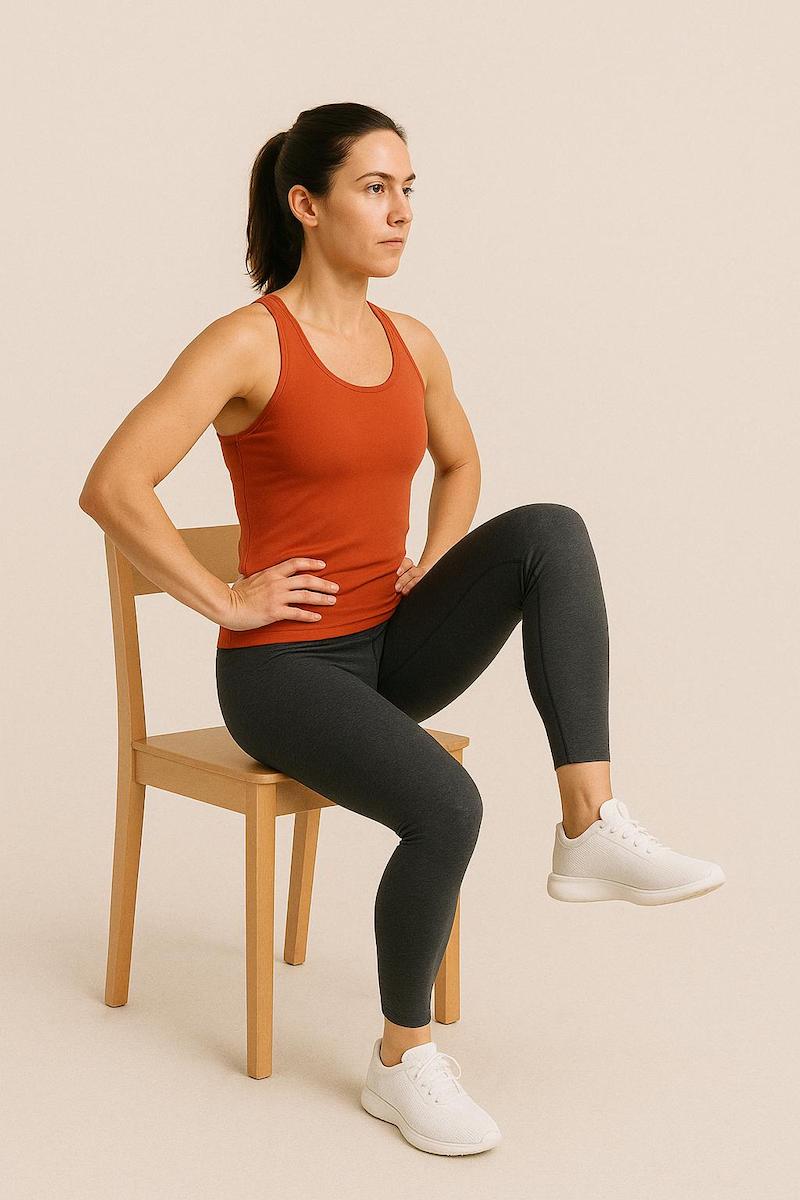
Benefits: Great low-impact move for older adults to improve hip flexor strength and stability.
16. Donkey kicks
How to do it:
- Start on all fours.
- Lift one leg, keeping the knee bent at 90 degrees, pressing the foot toward the ceiling.
- Lower with control, then repeat.
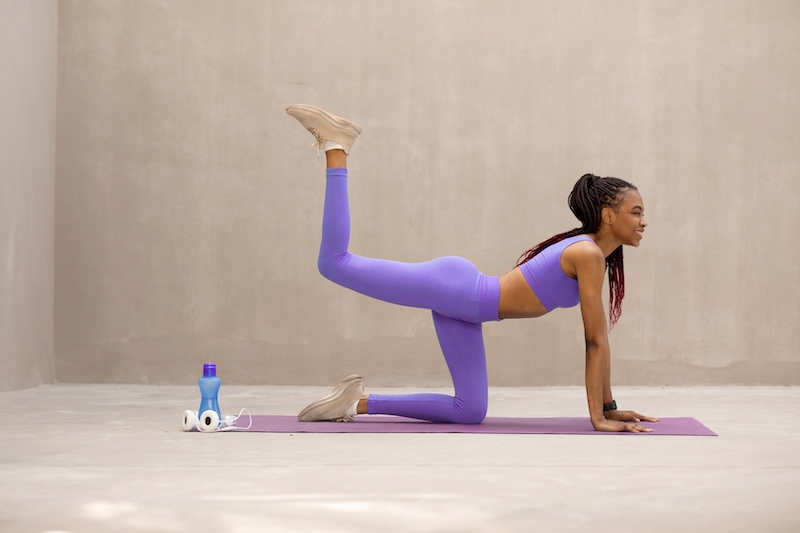
Benefits: Strengthens glutes and hip extensors, helping improve posture and athletic power.
17. Side plank
How to do it:
- Lie on your side, propped up on your elbow.
- Lift hips off the floor, forming a straight line from head to heels.
- Hold, then switch sides.

Benefits: Strengthens the hip abductors, obliques and core for total stability.
18. Calf raises
How to do it:
- Stand tall, feet hip-width apart.
- Rise up onto your toes, hold briefly, then lower.
- Perform slowly and controlled.

Benefits: Strengthens calves and ankles, which indirectly support hip stability and gait.
19. Reverse lunge
How to do it:
- Stand tall, step one foot back and lower into a lunge.
- Keep front knee over ankle and torso upright.
- Push through front heel to return to standing.
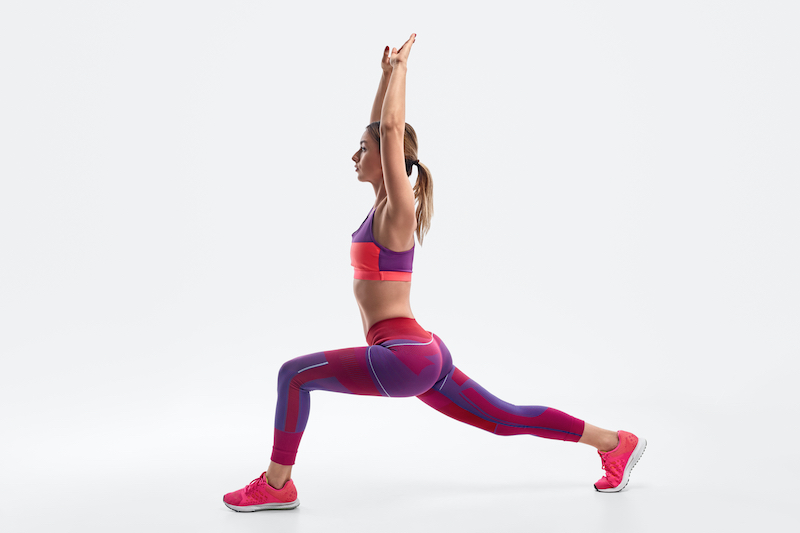
Benefits: Strengthens hips, glutes and quads while improving balance and mobility.
20. Side lunge
How to do it:
- Stand tall, step one leg out to the side and bend that knee while keeping the other leg straight.
- Push through the bent leg’s heel to return to standing.
- Alternate sides.

Benefits: Builds hip strength in multiple planes of motion, increasing functional stability and flexibility.
Benefits of strong hips
When you commit to hip strengthening exercises, you may notice improvements like:
- Better balance and stability
- Reduced risk of falls and injuries
- Improved posture and alignment
- Decreased hip, knee and back pain
- Enhanced athletic performance
- Greater mobility and flexibility
Hip strengthening workout routine
To get the most from these moves, try this simple routine two to three times per week:
- Warm-up (five minutes): Light cardio (walking, cycling or dynamic stretches)
- Circuit (two to three rounds):
- 12 glute bridges
- 12 clamshells per side
- 10-12 squats
- 12 fire hydrants per side
- 10-12 step-ups per leg
- Cool-down (five minutes): Hip stretches like pigeon pose, seated forward fold or butterfly stretch
This balanced program helps activate and strengthen all major hip muscles for mobility and stability.
Here’s another more intense program you can do two to three times per week. Adjust reps based on your level:
Warm-up (five minutes):
- Hip circles
- Frankenstein walk
- Light cardio (walking or cycling)
Workout (two to three rounds):
- 12 glute bridges
- 10 single-leg hip bridges per side
- 12 clamshells per side
- 12 lateral band walk steps per side
- 10 lateral step downs per leg
- 12 donkey kicks per side
- 10 single-leg Romanian deadlifts per leg
- 30- to 45-second side plank per side
- 12 reverse lunges per side
- 12 side lunges per side
- 12 step-ups per side
- 15 sidesteps each direction
- 15 calf raises
Cool-down (five minutes):
Precautions
- Start slowly and focus on proper form to avoid injury.
- If you have hip pain, arthritis or a recent injury, consult a healthcare professional before starting hip strengthening exercises.
- Avoid pushing through sharp pain. Discomfort from muscle activation is normal, but joint pain is not.
- Gradually progress with resistance bands, dumbbells or weight plates as you get stronger.
Conclusion
- Strong hips are the foundation of healthy movement, balance and injury prevention.
- By adding hip strengthening exercises to your weekly routine, you can improve mobility, protect your lower back and knees, and support long-term joint health.
- Whether you’re an athlete or simply want to move more comfortably, consistent hip training with hip strengthening exercises will pay off in strength, stability and confidence.



